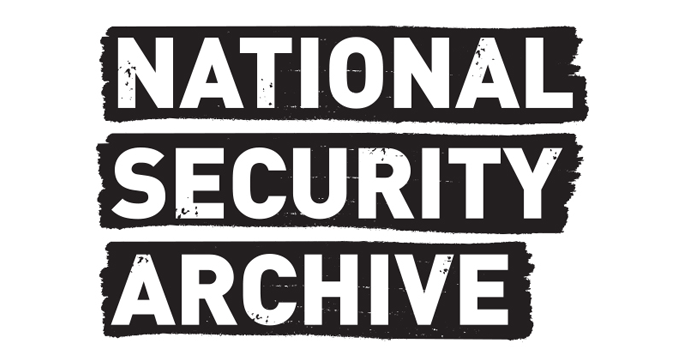U.S. Diplomacy and the Bosnia Peace Process 1995; National Security Archive Electronic Briefing Book No. 171; By Derek Chollet and Bennett Freeman; Posted - November 21, 2005.
Unclassified United States Documents Washington, D.C., November 21, 2005 - Every work of history is not just a statement about the past, but a reflection of the era -- if not the precise year -- during which it was written. This is certainly the case with the now-declassified 1997 U.S. State Department study of the American effort to end the Bosnian war, the original version of which is now available.
On November 21, 1995, the world witnessed an event that for years many believed impossible: on a secluded, wind-swept U.S. Air Force Base in Dayton, Ohio, the leaders of Bosnia, Serbia, and Croatia agreed to end a war. The signing of the Dayton Peace Accords concluded one of the most challenging diplomatic undertakings the United States had pursued since the end of the Cold War -- eighteen weeks of whirlwind shuttle diplomacy, followed by twenty-one intensive days of negotiations in Dayton. The agreement brought peace to a troubled corner of Europe, and established an ambitious blueprint to build a new Bosnia -- an effort that the international community remains deeply engaged in today.
Dayton also capped a dramatic reversal not only of U.S. policy, but of the credibility of American leadership of the Atlantic Alliance in the immediate aftermath of the Cold War. For three years, the American approach toward the Bosnia problem had been one of disengagement, hoping that the Europeans -- who had high hopes for their fledgling political union -- would take the lead to solve the problem. Yet Europe's response proved feckless, and the United States proved no better. More than any other foreign policy issue, the problem of Bosnia's defined -- and plagued -- the early years of Bill Clinton's presidency. Despite some significant successes during his first term -- such as the Middle East peace process, the 1994 Framework Agreement with North Korea, the passage of NAFTA -- Clinton's early years were in many ways defined by the inability to bring peace to Bosnia.
Dayton's core accomplishment is that it ended a war and gave hope to millions who have suffered immense hardship. But it did more than that. Dayton brought to an end one of the most difficult periods in the history of U.S.-European relations, helping to define a new role for NATO and restore confidence in American leadership after a period during which it been cast into doubt.
Files:References:
The Secret History of Dayton
U.S. Diplomacy and the Bosnia Peace Process 1995
National Security Archive Electronic Briefing Book No. 171
By Derek Chollet and Bennett Freeman
Posted - November 21, 2005



